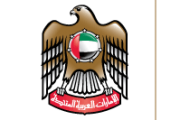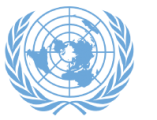Thank you, Mr. President, for convening this Open Debate on Women, Peace and Security. We join others in thanking the Secretary-General for his strong message on the critical importance of realizing the full implementation of this agenda. We also thank the Executive Director of UN Women, Madam Phumzile Mlambo-Ngcuka, for her frank briefing, and offer our continued support to UN Women for their work in advancing this file. Additional thanks to Ms. Randa Siniora Atallah for her important presentation. As a Member of the Group of Friends of Women, Peace and Security, the UAE endorses the Group’s joint statement.
Mr. President,
The UAE adds its voice to those congratulating Nadia Murad and Denis Mukwege being awarded the 2018 Nobel Peace Prize. They have tirelessly dedicated themselves to bringing a spotlight to the plight of survivors of conflict-related sexual violence, and their work has tangibly improved the lives of those affected. We commend Ms. Murad for her unwavering efforts in calling on the world to take a tougher line on Da’esh’s use of sexual violence as a weapon of war, including here in her briefing to this Council Chamber. It’s a strong signal of how individual voices can and must put Women, Peace and Security at the heart of the global agenda.
Mr. President,
Ultimately, Member States hold the primary responsibility for advancing the WPS agenda, and the burden of action is on us. But as the Executive Director’s briefing showed, we are lagging woefully behind on targets. The Secretary-General’s Report should sound a loud alarm bell on systemic failures to bring women into peacemaking.
As a co-sponsor of resolution 2242 three years ago, we reaffirm that gender equality and women’s empowerment are critical to conflict prevention, and to broader efforts to maintain international peace and security, but that not enough is being done to realize the resolution’s goals.
Some important steps to operationalize the WPS agenda over the past few years have been taken by the UN, but we believe that this progress must continue at a faster pace. In fact, 64 percent of resolutions and 89 percent of presidential statements, as of the beginning of October of this year, contain references to WPS. In 2018 thus far, ten women have been invited to brief the Security Council on country-specific situations. The National Focal Points Network, of which the UAE is a foundational member, has also driven coordination and implementation of the WPS agenda at the national level.
In fact, implementation of this agenda on the ground remains a challenge due to a confluence of threats ranging from the rise in terrorism and extremism, to the targeting of women and girls in conflict zones, and to the protracted nature of crises today. But the disappointingly low number of women in peacebuilding, where women only make up 2 percent of mediators, 5 percent of witnesses and signatories, and 8 percent of negotiators in formal peace processes, is not acceptable, and we must all commit to improving these numbers. In fact, our financial contributions should demand that women’s participation in peace processes reach the 50 percent mark.
Mr. President,
One way to do this from our own experience comes from our foreign assistance strategy, which includes “women’s protection and empowerment” as one of its three key pillars.
The UAE recognizes that financing is critical for the effective implementation of the WPS agenda, moving words into action. This is why we recently launched the “100% Women Policy”, which aims to ensure that by 2021, 100 percent of bilateral and multilateral foreign assistance will target or integrate gender equality and women’s empowerment as key components of our policy and programming. We hope this model is replicated and more widely adopted globally. Research continues to demonstrate the direct relationship between gender equality and the prevention of conflict, and we believe that this Policy is a real and tangible way to achieve this.
The UAE also considers its partnership with UN Women as a key part of the global strategy to implement the WPS agenda. We believe in UN Women’s ability to drive progress globally, which is why we have been a supporter of UN Women since its inception. The UAE’s 2018 UN Women contribution of five million US dollars is unearmarked, but we have urged UN Women to use part of these funds to ensure the implementation of the WPS agenda around the world. We urge others to join us in supporting UN Women with both words and financial action.
Responding to the Secretary-General’s call to increase the number of women in peacekeeping, the UAE General Women’s Union, our Ministry of Defense, and UN Women will organize a military and peacekeeping training for Arab women –the first of its kind in our region – and certainly a step in the right direction. The purpose of this training is three-fold:
First, to increase the pool of female military officers in the security sector by providing participants with the training to consider potential career prospects in national militaries and peacekeeping operations.
Second, to create peer-to-peer networks among women interested in joining the military and peacekeeping fields;
And third, to drive the strategic objectives of UN Security Council Resolution 1325, with particular attention to the importance of capacity building and training.
The UAE recognizes that peacekeeping operations and uniformed personnel remain the most visible representatives of the United Nations, directly working with communities each day, and that increasing the number of women in peace operations is an operational imperative.
Mr. President,
The UAE would like to make three recommendations as we work in partnership with Member States, the United Nations, and the international community to drive global progress on this agenda:
First, financing is essential. The UAE endorses the Secretary-General’s recommendation for all relevant UN operational entities to track targeted and mainstreamed budgetary allocations and expenditures related to WPS. This data will serve to indicate progress achieved towards reaching or exceeding the minimum 15 percent target for programmes that further gender equality and women’s empowerment in peacebuilding contexts. And we understand that financial support is required if we are to truly promote women’s participation in peace and security, which is why we are directing our funding this way.
Second, we reiterate the calls of the Secretary-General to improve gender parity in peace operations. This is not just for the sake of proclaiming gender parity, but is an operational imperative: We know that female peacekeepers act as role models in local communities, inspiring women and girls to push for their own rights and to participate in peace processes. The UAE will do our part to support the training of women in the military and peacekeeping, not only in our region, but globally as well, striving to increase the number of women in the security sector.
And finally, it is critical that we advance women’s meaningful participation in peace processes around the world, and that we continue to document our progress. And we must not neglect the informal peace process, where women often have the most impact. We know that since the end of the Cold War, more than half of informal peace processes have involved concerted efforts by women’s groups to forge a peace. We must do more to link Track I and Track II peace processes, by supporting the Secretary-General in his efforts to nominate more women mediators and create a 1325 directive for all mediators to strengthen connections with civil society and women’s organizations. In our region, we face a challenge of prolonged crises, which are merely “managed” in the absence of political solutions. In this regard, the UAE will strive to support existing political initiatives, including working with UN envoys to support women’s effective participation in peacebuilding.
Mr. President,
Women’s meaningful participation is at the heart of the implementation of the Women, Peace and Security agenda. This includes recognizing women’s agency and the vital roles played by women in local communities, as well as the inclusion of women in political and peace processes, and institution-building. The UAE will continue to promote women’s participation as a key principle of our global peace and security efforts and is committed to working towards the effective implementation of the Women, Peace and Security agenda.
Thank you.


